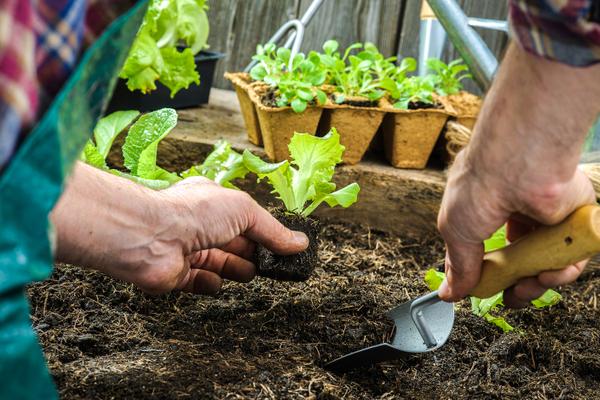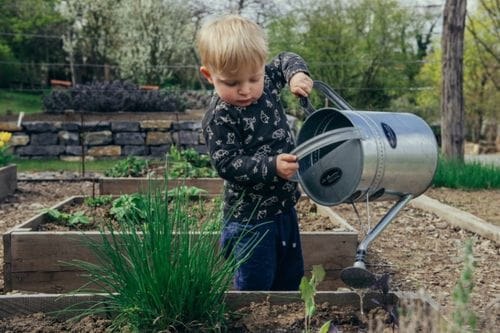Newbie Gardening: Structure a Structure for Effective Plant Growth
Wiki Article
From Novice to Environment-friendly Thumb: a Newbie's Trip Into the Globe of Gardening
From Beginner to Environment-friendly Thumb: a Newbie's Trip Into the Globe of Horticulture offers an extensive overview for individuals looking to grow their very own garden. Newbie Gardening. From recognizing the essentials of plant choice and dirt preparation to repairing common gardening issues, this book outfits viewers with the understanding and skills required to transform their outdoor spaces right into growing yards.Comprehending the Essentials
The very first step in becoming a successful garden enthusiast is to realize the essential principles and techniques that develop the foundation of gardening. Comprehending the essentials is necessary for any person who wants to expand and support plants efficiently. One of the essential principles of horticulture is to offer plants with the ideal expanding problems. This includes considering elements such as sunshine, dirt quality, water demands, and temperature level choices. Various plants have varying requirements, and it is vital to research and comprehend these needs prior to choosing and planting them in your yard.
Moreover, recognizing parasite and condition administration is critical for keeping a healthy and balanced yard. Identifying usual yard bugs and conditions, as well as finding out about natural and chemical control techniques, can assist avoid and deal with problems that may occur.
Picking the Right Plant Kingdoms
To guarantee a successful gardening trip, amateur gardeners should very carefully choose plants that line up with their yard's specific expanding problems. Selecting the right plants is important as it figures out the general health and wellness and efficiency of the garden. Each plant has its very own set of needs, including sunshine, dirt kind, dampness levels, and temperature level. By comprehending these requirements and choosing plants appropriately, gardeners can create the optimal growing atmosphere for their plants.One of the initial elements to think about when selecting plants is the quantity of sunshine offered in the yard. Some plants flourish completely sun, while others prefer partial and even full shade. Examining the quantity of sunshine received in different areas of the garden will help identify which plants will certainly grow in each place.
Soil type is an additional crucial factor to consider. Various plants have various soil preferences, ranging from well-draining sandy dirt to moisture-retaining clay soil. Performing a soil test can offer important details concerning the pH degree and nutrient web content of the dirt, helping garden enthusiasts pick plants that will grow in their garden's details soil problems.
Additionally, water needs play a substantial role in plant selection. Some plants are drought-tolerant and call for very little watering, while others flourish in damp environments. When selecting plants., considering the schedule of water and the capability to supply sufficient watering is vital.
Finally, the regional climate and temperature variations must be thought about. Some plants are more cold-hardy and can stand up to frost and freezing temperatures, while others are much more fit to tropical and warm environments. Understanding the environment and choose plants accordingly will guarantee their survival and success in the garden.
Preparing the Dirt
Correct dirt prep work is essential for newbie gardeners to produce a nutrient-rich and abundant foundation for their plants. Prior to planting, it is crucial to assess the soil's structure, nutrient, and drainage content to make certain optimum growing problems. One of the initial steps in soil preparation is eliminating any kind of weeds or debris from the planting area. This aids avoid competition for nutrients and lowers the threat of insects and illness. Once removed, the dirt should be loosened up to boost its framework and permit for better root development. This can be done by tilling or excavating the dirt, damaging up any type of compacted locations.It is likewise crucial to evaluate the dirt's pH level to establish pop over to this web-site its level of acidity or alkalinity. Most plants favor a slightly acidic pH between 6.0 and 7.0. Changes such as lime or sulfur can be included to adjust the pH appropriately. if the dirt is as well acidic or alkaline.
Adding organic issue, such as garden compost or well-rotted manure, is another crucial action in dirt prep work. Raw material improves dirt framework, enhances water drainage, and offers important nutrients for plant growth. It also serves as a sponge, helping the soil retain dampness throughout completely dry durations.

Nurturing and Preserving Your Yard
After preparing the dirt, novice garden enthusiasts can start supporting and maintaining their garden to guarantee healthy plant growth and an abundant harvest. Nurturing a garden involves several key jobs, consisting of watering, fertilizing, and safeguarding plants from insects and conditions.Watering is necessary for plant survival, and it is essential to give ample dampness without overwatering. Beginner gardeners must learn concerning the watering needs of their particular plants and adjust as you could try these out necessary. It is suggested to water plants in the early morning to enable adequate time for the foliage to dry before nightfall, lowering the danger of diseases.
Feeding is one more vital aspect of garden upkeep. Amateur gardeners should investigate the details dietary needs of their plants and select appropriate plant foods. Organic alternatives, such as garden compost or manure, can be valuable for total plant wellness and soil fertility.
Shielding plants from diseases and parasites is a constant effort. Routine surveillance, early detection, and timely action are essential to avoid significant damages. Amateur garden enthusiasts ought to familiarize themselves with typical parasites and illness in their area and learn more about chemical or natural control techniques.
Along with these jobs, regular weeding, trimming, and mulching ought to not be ignored. Weeds take on plants for resources, so eliminating them frequently is essential. Trimming aids form plants and urges healthier development, while mulching conserves dampness, suppresses weeds, and controls soil temperature.
Troubleshooting Common Horticulture Issues
Gardeners may come across various common horticulture issues that need troubleshooting to maintain the wellness and vigor of their plants. One usual issue is pest problem. Pests like snails, aphids, and slugs can wreak chaos on plants, triggering damages to leaves, stems, and flowers. Garden enthusiasts can address this concern by using natural insect control approaches, such as introducing natural predators or using insecticidal soaps.An additional problem that garden enthusiasts commonly deal with is nutrient shortage. Plants call for a well balanced supply of nutrients to grow, and deficiencies can lead to stunted growth, yellowing fallen leaves, and poor fruit growth. Performing a dirt examination can help figure out which nutrients are doing not have and enable gardeners to modify the soil accordingly with natural plant foods or garden compost.
In addition, improper watering practices can additionally cause troubles in the garden. Overwatering can bring about root rot and fungal click for more diseases, while underwatering can cause vitamins and mineral and wilting inequalities. Finding the best equilibrium is important, and garden enthusiasts should check soil dampness levels and change watering schedules accordingly.
Finally, environment and weather can position challenges to garden enthusiasts. Extreme temperature levels, frost, solid winds, and hefty rain can harm plants. Protective steps such as making use of frost covers, windbreaks, and supplying color can assist minimize these issues.
Final Thought
Finally, this write-up has actually supplied a thorough introduction of the trip from being a novice to coming to be an environment-friendly thumb on the planet of gardening. By recognizing the basics, picking the right plants, preparing the soil, and nurturing and maintaining the yard, newbies can get over common gardening problems and efficiently grow their very own lush and lively gardens. With devotion and technique, any person can create the abilities and knowledge needed to become a knowledgeable gardener.Various plants have differing needs, and it is important to research and comprehend these needs before selecting and planting them in your yard.
By understanding these demands and choosing plants appropriately, garden enthusiasts can produce the optimum expanding environment for their plants. backyard gardening for beginners.
Various plants have different soil preferences, ranging from well-draining sandy soil to moisture-retaining clay soil. Carrying out a dirt test can supply beneficial info regarding the pH degree and nutrient material of the dirt, assisting gardeners pick plants that will thrive in their yard's certain dirt problems.
By understanding the basics, selecting the right plants, preparing the dirt, and nurturing and maintaining the yard, beginners can conquer typical horticulture issues and efficiently grow their very own lush and lively gardens.
Report this wiki page